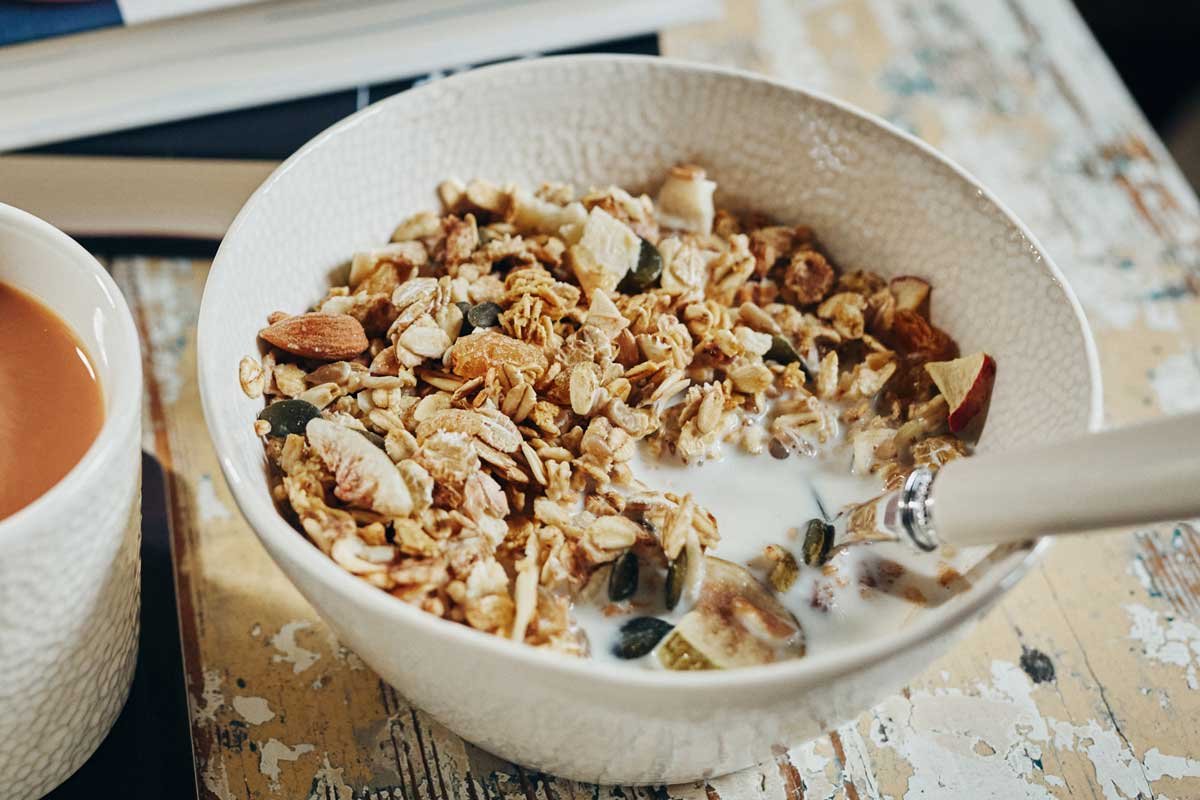How Can Exercise Help Improve Digestion? | Lizi’s
Your digestive system is a complex, yet fragile, eco-system that works hard to ensure you can absorb the maximum nutrition from the food you consume, as well as eliminating the toxins that we don’t need.
It’s incredibly important that we look after the condition of our digestive system, doing all we can to ensure it remains in tip-top condition.
As well as taking steps to improve the health of our digestive system – steps like eating well, staying hydrated, taking pre and probiotic supplements and minimising stress – we should also take literal steps.
By this, we mean exercise of course! Below are the reasons why exercise is so important for digestion.
You can also show your digestive system a little extra love outside the gym by having Lizi’s Digestive Health granola as part of your varied diet.
Exercise increases blood flow to the gut
Movement increases blood flow around the body. This improves circulation and all-round body functionality – including the gastrointestinal tract – after exercise. Increased blood flow results in strong intestinal contractions, keeping food moving through at an optimal rate and an increase in digestive enzymes.
Aerobic activity such as walking, running and swimming is particularly helpful, while studies have found that yoga can also have a positive effect on the digestive system.
This also means that post lunch walk is going to help your digestion, although it’s advisable to wait around an hour after eating a large meal before exercising.
Exercise releases endorphins and reduces stress
When we exercise, our body responds by releasing endorphins that interact with brain receptors, triggering feelings of positivity, and reducing feelings of anxiety and stress.
As stress is known to cause inflammation to the gut, an increase in stomach acid and stomach cramping – which all hinder digestion – the release of endorphins promotes good digestion and gut health.
Exercise improves the growth of gut flora
Although the correlation hasn’t yet been proven by numerous studies, there is evidence to suggest that exercise can promote the growth of gut flora.
Gut flora, comprised of bacteria, fungi and viruses, is also referred to as ‘the microbiome’ and is a crucial part of the digestive system.
Rather than being associated with illness and disease, these healthy bacteria and viruses help to maintain a healthy immune and digestive system, contributing to our general health and wellbeing and brain health.
What to eat before or after exercising
There are ways to maximise your workout by being mindful of the food you eat before and after.
Pre-workout
Pre-workout snacks and meals should provide you with all the helpful calories to fuel your exercise. Snacks such as protein shakes, apple and peanut butter, Lizi’s High Protein granola with Greek yoghurt, or even some simple boiled eggs are perfect choices.
You might want to tailor your pre-workout food to the type of exercise you plan on doing. For example, long-distance runners will need slow release carbs, while those going to HIIT training will find that fats give them the short-term energy boost they need; strength training will require protein to repair the micro-tears in muscles.
And remember – it’s incredibly important to stay hydrated before, during and after your workout.
Looking for a high-protein granola? Shop the Lizi’s range!
Post-workout
To replenish the energy stores you have just used during exercise, you should eat as soon as possible after your workout. This prevents the breakdown of muscle protein, which is important for the growth of muscles and recovery.
For many, this means being prepared and having a protein shake to hand.
Complex carbohydrates are vital to restore depleted glycogen levels and particularly help with recovery. Wholegrain rice, pasta, quinoa and sweet potato are all great choices of post-workout carbohydrates.
Meal ideas include:
- Grilled chicken or salmon with sweet potato and vegetables
- Scrambled eggs with avocado on wholemeal toast
- Cottage cheese on wholemeal crackers
- Granola with Greek yoghurt and berries – we know a fab granola!


